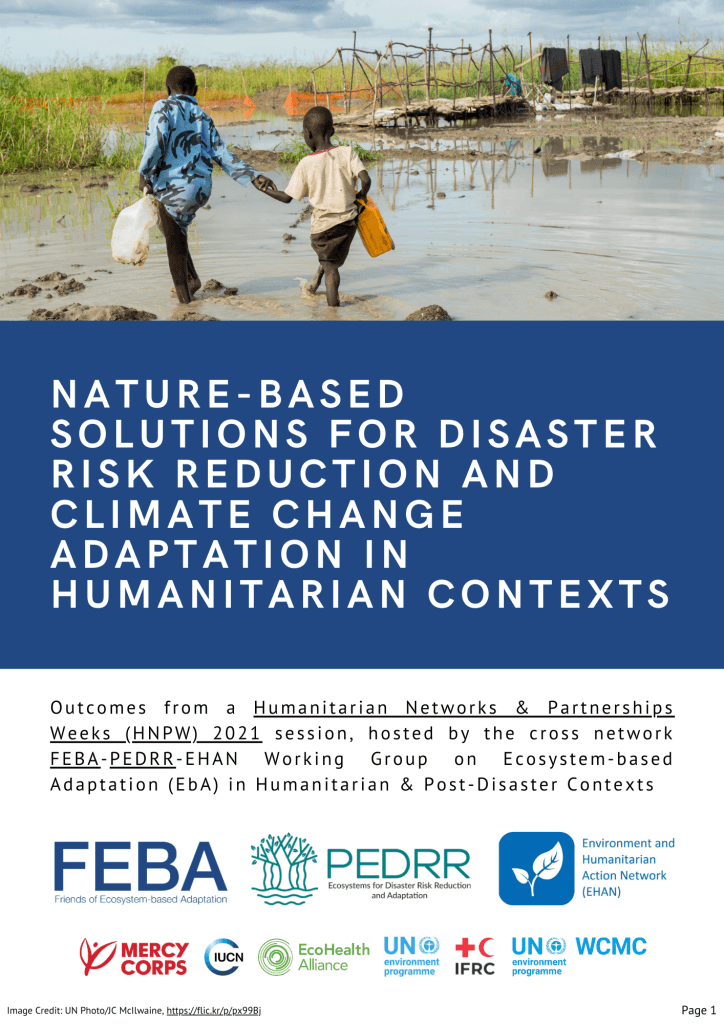The Humanitarian Networks and Partnerships Weeks (HNPW) 2021 took place from 19 April to 7 May 2021. The FEBA, Partnership for Environment and Disaster Risk Reduction (PEDRR), Environment and Humanitarian Action Network (EHAN) cross-network working group on EbA in Humanitarian & Post-Disaster Contexts hosted a joint session at the HNPW 2021 on the topic of Nature-based Solutions for Disaster Risk Reduction and Climate Change Adaptation in Humanitarian Contexts.
Ecosystem services, environmental health and safeguarding, and natural hazards are often overlooked within humanitarian crises. Degradation of ecosystems and their services exacerbates peoples’ risk from the hazards and impacts of climate change, reducing access to safe, sufficient natural resources needed for livelihoods and undermining long-term development gains. Meanwhile, environmental and climactic factors play a critical role in the development and trajectory of complex crises. The cross-network working group on EbA in Humanitarian & Post-Disaster Contexts, chaired by Mercy Corps and IUCN, convenes stakeholders across the global networks of FEBA, EHAN, and PEDRR, to collaboratively address how nature-based solutions and environmental safeguarding can be a core component of, and a strategy in, humanitarian aid and development. In this session, a panel discussion of participants across sectors in nature-based solutions for disaster risk reduction explored the contribution of ecosystem-based adaptation to developing cost-effective, novel and durable solutions within crisis-hit areas and building immediate and long-term resilience. Interactive small group discussions followed, exploring different themes and deliverables (e.g. policy briefs, a toolkit and guidance) of the working group’s learning agenda and promoting collective problem-solving and partnership.


